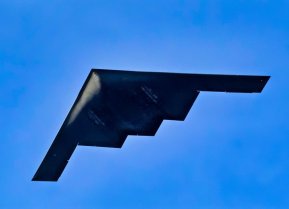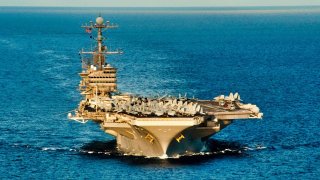The Navy's $13 Billion Gamble: The Aircraft Carrier's Fate in a Clash with China
Given the strategic and operational challenges posed by the prospect of direct conflict between the U.S. and China, especially concerning the vulnerability of aircraft carriers to Chinese military capabilities, the decision to deploy such valuable assets into a potential warzone in the Indo-Pacific would indeed require careful consideration.
Summary: Given the strategic and operational challenges posed by the prospect of direct conflict between the U.S. and China, especially concerning the vulnerability of aircraft carriers to Chinese military capabilities, the decision to deploy such valuable assets into a potential warzone in the Indo-Pacific would indeed require careful consideration. The critical factors influencing this decision would encompass the assessment of military risks versus strategic objectives, the carrier's role within the broader context of U.S. military strategy in the region, and the dynamics of international diplomacy and public sentiment.
Assessing the Aircraft Carrier's Viability in U.S. Military Strategy Against China's Rising Might
It is not perfectly clear that a U.S. aircraft carrier would survive the combat environment in a direct war between the U.S. and China. Some observers see modern carriers as entirely sinkable when confronted with Chinese submarines, surface vessels, intermediate- and long-range missiles, and hypersonic missiles.
Given the potential of losing an aircraft carrier, and the high cost of operating a vessel that houses many thousands of sailors and airmen and takes several years to build, would Washington risk sending one into a warzone in the Indo-Pacific?
Understanding the Risk to Aircraft Carriers
An aircraft carrier is a technological marvel, but it is still a boat. And boats, as the designers of the Bismarck or the RMS Titanic would tell you, can be sunk – especially when a foreign government has designed and stockpiled the weaponry needed to sink one.
China is engaged in one of history’s most ambitious shipbuilding sprees. President Xi Jinping’s forces have grown to include various attack submarines and surface vessels that could, in theory, target an American carrier. Similarly, China is aggressively expanding its own carrier fleet, which could launch aircraft capable of targeting an American carrier.
The threat to U.S. carriers is not only sea-based. While the U.S. was bound by an arms-control treaty with the Soviet Union/Russia to eliminate stocks of intermediate-range missiles, China stockpiled those very missiles. Relatedly, China invested in the development of hypersonic missiles. These weapons are now in the Chinese arsenal, and the Americans lack the ability to defend against them.
Beholden to Public Sentiment
Public buy-in toward a war with China would do much to determine whether the U.S. is comfortable assigning a potentially vulnerable aircraft carrier to the region.
The new Ford-class carriers cost $13 billion per unit. Nimitz-class carriers sail with a complement of about 5,000 sailors. These vessels can take several years to build. All told, the monetary and human investment that the U.S. pours into each of their 11 aircraft carriers is substantial. Losing just one would be catastrophic in terms of the military budget, military capacity, and human life. Indeed, losing the sailors aboard an aircraft carrier would represent double the loss of U.S. lives in either the 9/11 attacks or the resulting Afghanistan War.
Washington’s willingness to take such a risk would depend largely on public sentiment toward the war. Is the public onboard, fully mobilized as a unified population with the singular purpose of winning the war (like in World War II)? If so – if the conflict is treated as existential – then the U.S. would likely be willing to risk losing an aircraft carrier.
But if the answer is no – if the U.S. population is divided in its views, such as during the Vietnam War, or if it is apathetic (Afghanistan) or even skeptical (Iraq), American decisionmakers would probably not be willing to risk the sinking of an aircraft carrier. And if the U.S. is not willing to take such a risk, especially if it lacks total public buy-in for a war with China, the U.S. is unlikely to win that war, and Washington may want to reconsider its participation entirely.
About the Author: Harrison Kass
Harrison Kass is a defense and national security writer with over 1,000 total pieces on issues involving global affairs. An attorney, pilot, guitarist, and minor pro hockey player, Harrison joined the US Air Force as a Pilot Trainee but was medically discharged. Harrison holds a BA from Lake Forest College, a JD from the University of Oregon, and an MA from New York University. Harrison listens to Dokken.


